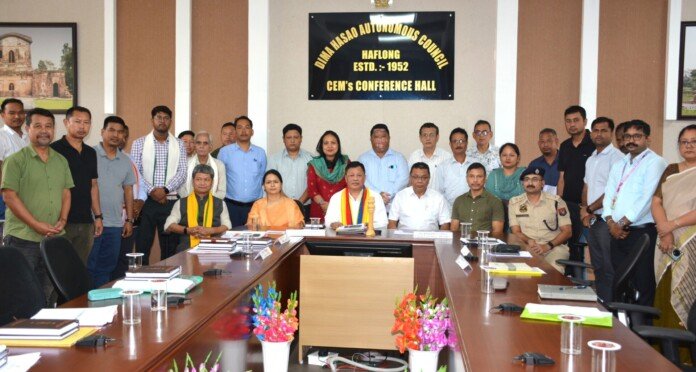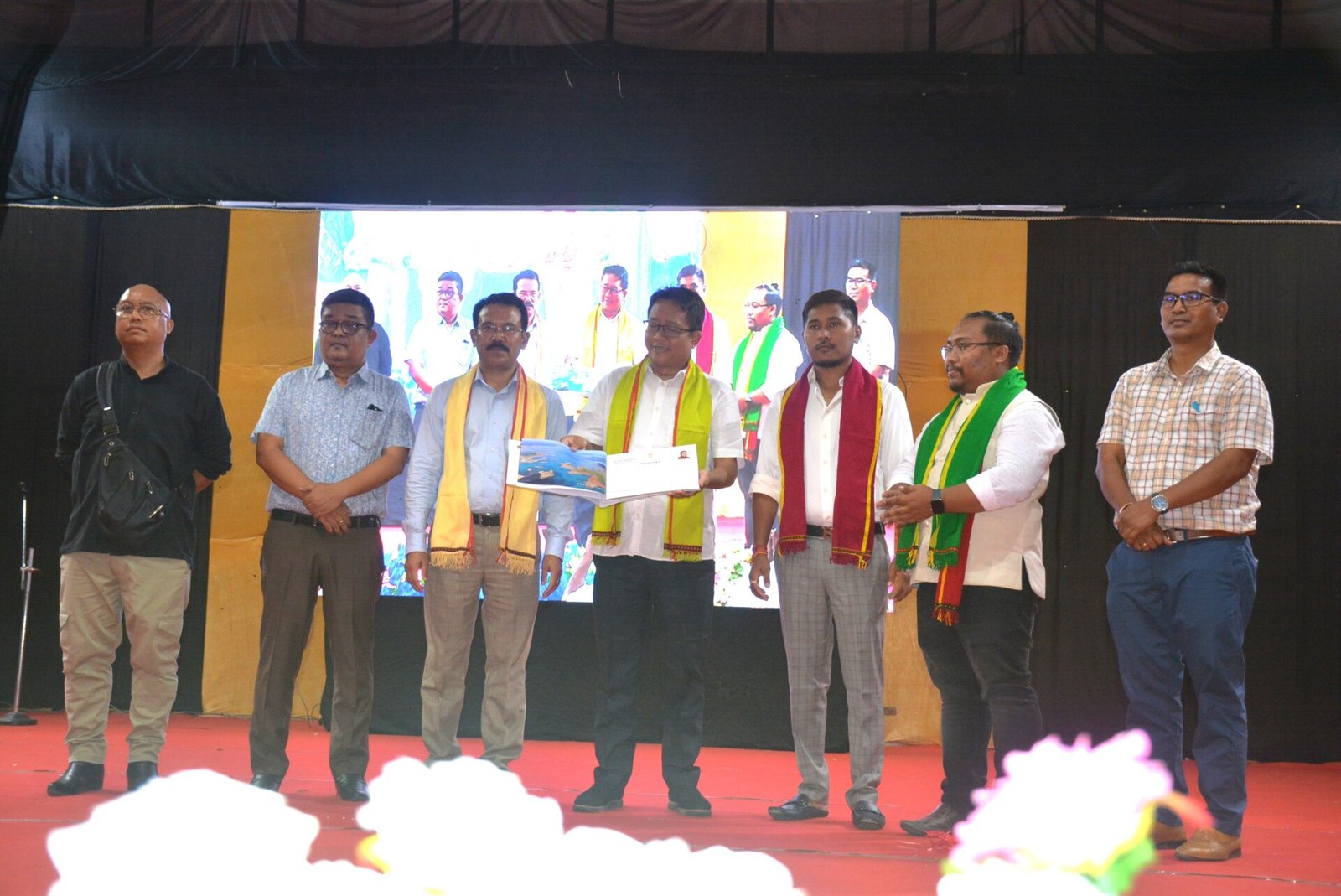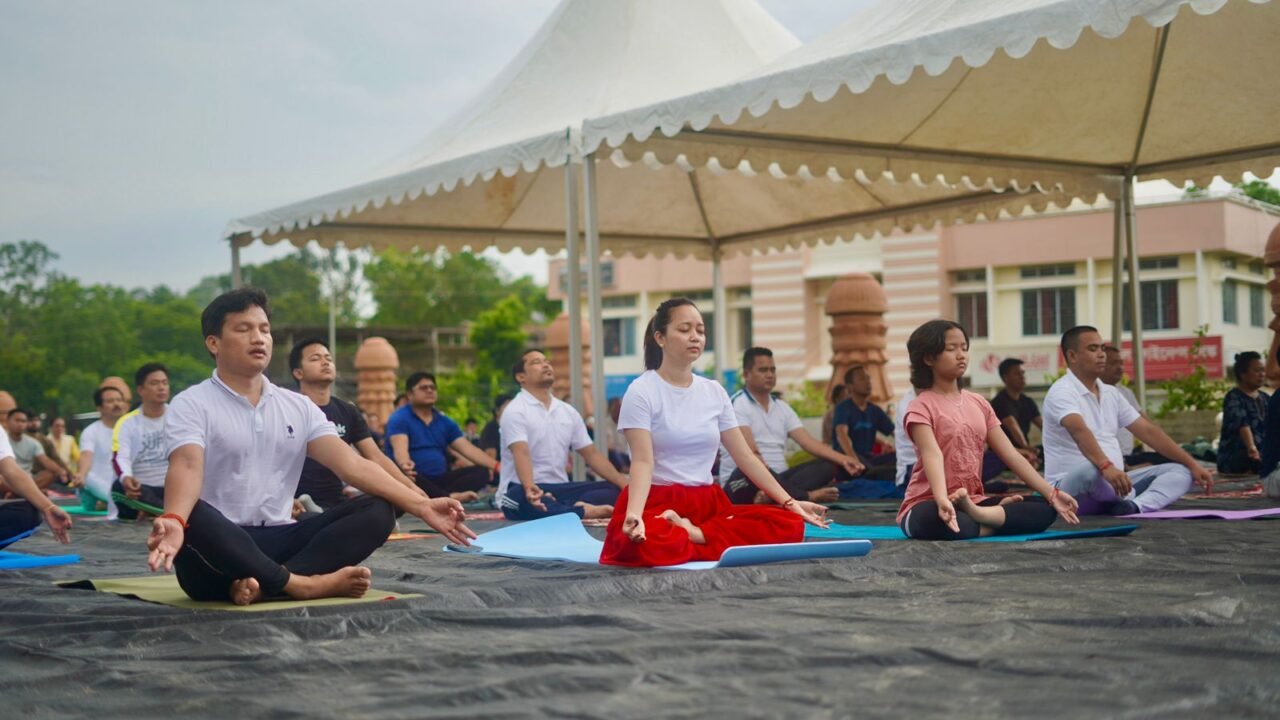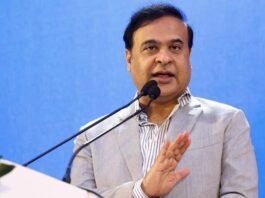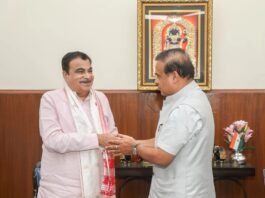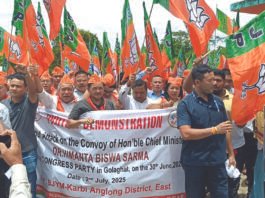HT Bureau
GUWAHATI, July 18: Member of the National Commission for Scheduled Tribes, Nirupam Chakma, along with Alka Tiwari, IAS secretary to the government of India, National Commission for Scheduled Tribes (NCST), and their distinguished team of NCST visited Dima Hasao for a two-day tour.
On Wednesday, they visited several villages such as Michidui, Sampardisa, Jatinga, and the Archaeological site of Chaikham. The members were accompanied by the executive member of Dima Hasao Autonomous Council (DHAC), Samuel Changsan, MACs of DHAC, Rupali Langthasa, Ramgalungbe Jeme, Flaming Rupshi, John Phoithong, DHAC secretary Partha Jahari, ACS, and other departmental officials.
As part of the tour, the members of the commission held an interaction with the villagers to understand them better and to note and address the problems, issues, and lifestyle of the villagers.
Nirupam Chakma, member of the National Commission for Scheduled Tribes, informed about various provisions and rights that safeguard the tribal communities in the villages, which are present under the Constitution or Government. He suggested protecting forests and reducing jhum cultivation. He also suggested that the practice of shifting cultivation should gradually be eliminated and that permanent settlement cultivation should be adopted.
On Thursday, the member of the National Commission for Scheduled Tribes held a review cum discussion meeting along with all the HoDs of line departments such as PHE, PWD, Agriculture, Health, DRDA, Social Welfare, Tourism, and Food, Public Distribution & Consumer Affairs at the Dima Hasao Autonomous Council CEM’s conference hall, Haflong. During the meeting, various key points were reviewed and discussed, such as access to quality education, scholarships, initiatives to improve literacy rates among STs, drinking water facilities, etc.
In the meeting, the commission asked the Health Department regarding the requirement of equipment and specialisations needed to enhance medical facilities and health services. Additionally, the Commission discussed that the practice of shifting cultivation should gradually be eliminated and that permanent settlement cultivation with modern methods of agricultural techniques, which will be more sustainable, should be adopted. The commission instructed that the proper implementation of all government schemes in the district should be ensured.

